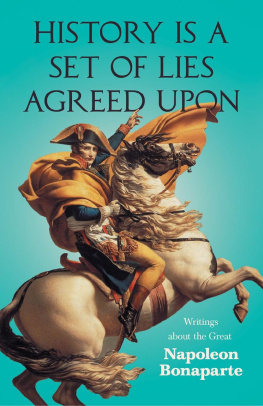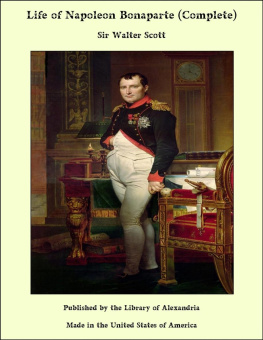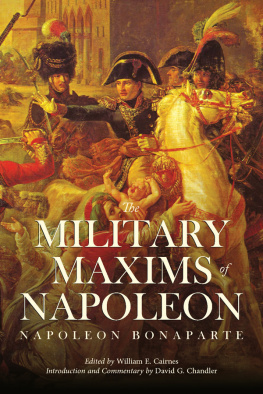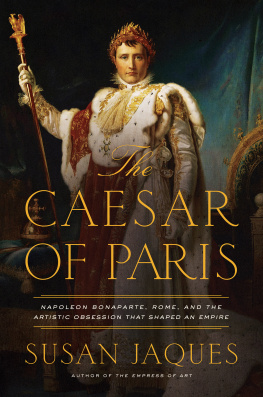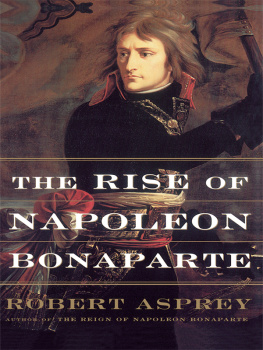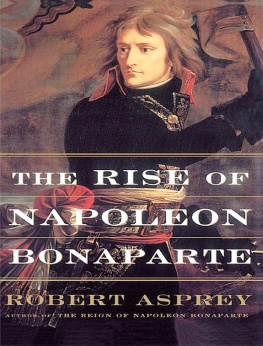Various - History is a Set of Lies Agreed Upon - Writings about the Great Napoleon Bonaparte
Here you can read online Various - History is a Set of Lies Agreed Upon - Writings about the Great Napoleon Bonaparte full text of the book (entire story) in english for free. Download pdf and epub, get meaning, cover and reviews about this ebook. year: 2021, publisher: Read Books, genre: Romance novel. Description of the work, (preface) as well as reviews are available. Best literature library LitArk.com created for fans of good reading and offers a wide selection of genres:
Romance novel
Science fiction
Adventure
Detective
Science
History
Home and family
Prose
Art
Politics
Computer
Non-fiction
Religion
Business
Children
Humor
Choose a favorite category and find really read worthwhile books. Enjoy immersion in the world of imagination, feel the emotions of the characters or learn something new for yourself, make an fascinating discovery.
- Book:History is a Set of Lies Agreed Upon - Writings about the Great Napoleon Bonaparte
- Author:
- Publisher:Read Books
- Genre:
- Year:2021
- Rating:3 / 5
- Favourites:Add to favourites
- Your mark:
- 60
- 1
- 2
- 3
- 4
- 5
History is a Set of Lies Agreed Upon - Writings about the Great Napoleon Bonaparte: summary, description and annotation
We offer to read an annotation, description, summary or preface (depends on what the author of the book "History is a Set of Lies Agreed Upon - Writings about the Great Napoleon Bonaparte" wrote himself). If you haven't found the necessary information about the book — write in the comments, we will try to find it.
Various: author's other books
Who wrote History is a Set of Lies Agreed Upon - Writings about the Great Napoleon Bonaparte? Find out the surname, the name of the author of the book and a list of all author's works by series.
History is a Set of Lies Agreed Upon - Writings about the Great Napoleon Bonaparte — read online for free the complete book (whole text) full work
Below is the text of the book, divided by pages. System saving the place of the last page read, allows you to conveniently read the book "History is a Set of Lies Agreed Upon - Writings about the Great Napoleon Bonaparte" online for free, without having to search again every time where you left off. Put a bookmark, and you can go to the page where you finished reading at any time.
Font size:
Interval:
Bookmark:

IS A SET OF
LIES AGREED UPON
GREAT
NAPOLEON BONAPARTE

an imprint of Read & Co.
way without the express permission of the publisher in writing.
A catalogue record for this book is available
from the British Library.
For more information visit
www.readandcobooks.co.uk
OF NAPOLEON
Poems That Every Child Should Know, 1904
(BONAPARTE)
Font size:
Interval:
Bookmark:
Similar books «History is a Set of Lies Agreed Upon - Writings about the Great Napoleon Bonaparte»
Look at similar books to History is a Set of Lies Agreed Upon - Writings about the Great Napoleon Bonaparte. We have selected literature similar in name and meaning in the hope of providing readers with more options to find new, interesting, not yet read works.
Discussion, reviews of the book History is a Set of Lies Agreed Upon - Writings about the Great Napoleon Bonaparte and just readers' own opinions. Leave your comments, write what you think about the work, its meaning or the main characters. Specify what exactly you liked and what you didn't like, and why you think so.

